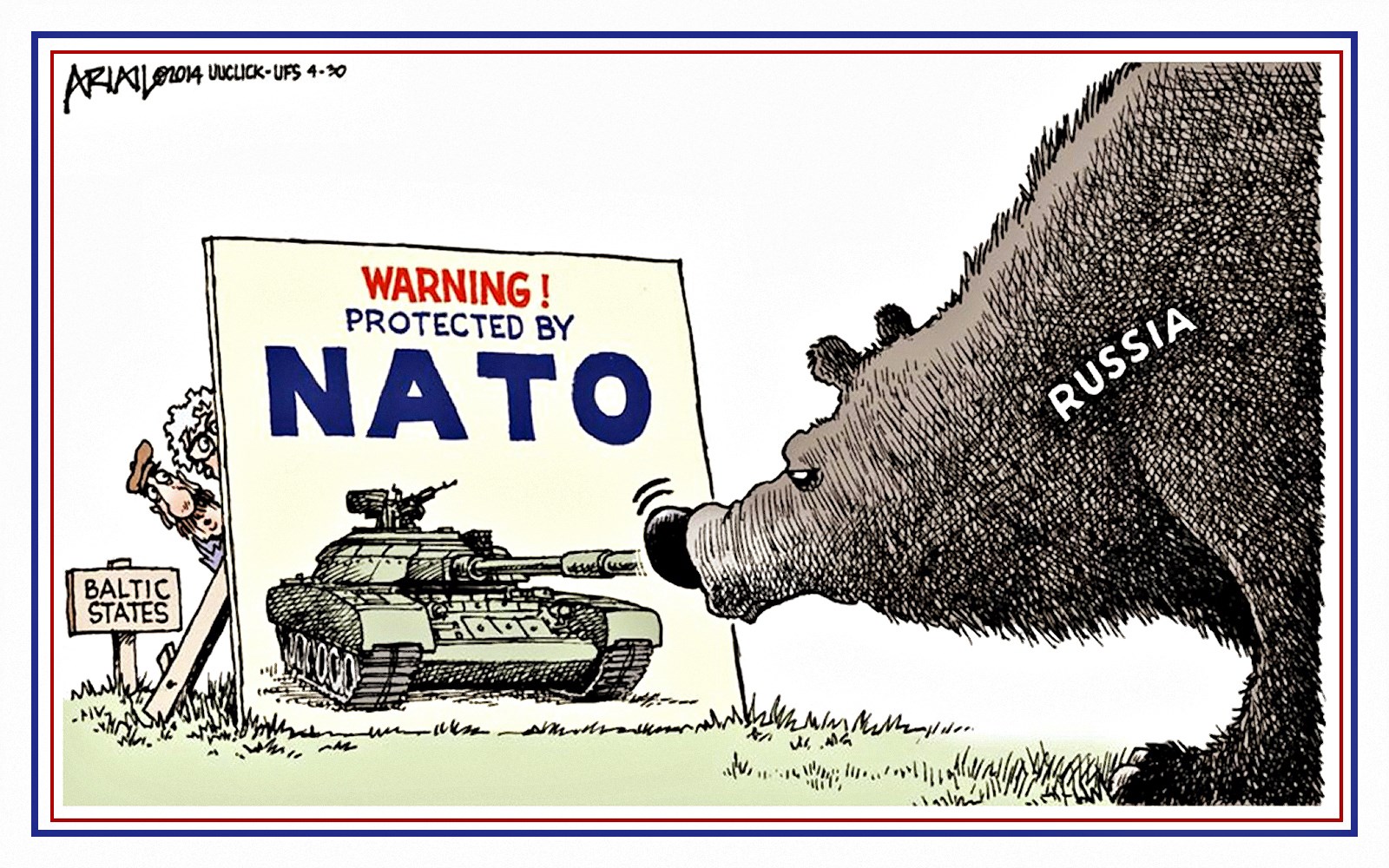How many nuclear weapons did the West have in 1913 and 1938? There are fundamental differences between pre-1945 and now.
While we prepared for the USSR rolling through the Fulda Gap during the Cold War, the fact that they didn't attempt it is more due to the fact that Moscow, St. Petersburg, Volgograd, and basically every other significant population centre in the Soviet Union would be a smoldering crater if they managed to break through than it was to the perceived strength of 4 CMBG or the rest of NATO's forces.
Does that mean we ignore conventional deterrence or the threat that Russia poses? Of course not. But I think we should be realistic about the threat that Russia actually poses to Western Europe. Absolutely I believe they could possibly take advantage of any perceived Western weakness to re-take some of their former client regions...especially those areas with significant Russian minorities.
However you'll have a difficult time convincing me that we need to fear Russian armoured columns driving towards the Rhine. The Russian Army is a fraction of the size that the Warsaw Pact was able to field at the end of the Cold War. The average age in Russia has gone from 34.9 in 1990 to 40.2 in 2020. The population of NATO nations is 941 million vs 146 million in Russia.
Russia simply isn't an existential threat to the West in a conventional war and they have no interest in committing national suicide in a nuclear war any more than we do. Accidents of course can happen, but in my opinion as long as we retain our overall conventional military overmatch to deter them from making a big gamble in a place where we have no choice but to escalate if we face a set-back then I believe there are numerous non-military levers we have that we can use that can be as, or more effective than strictly military levers.
It's even more simple than that.
Russia despite its reputation in recent years only ever invades a country for its own defensive interests. The Russians are
pathologically afraid of invasion. Mongols, Vikings, Poland/Lithuania, Austria-Hungary, Turkey, Prussia, Germany, France, Japan, the US, UK, even
Canada have at one time intervened or invaded Russia. All of Russia's foreign policy and military actions since its founding have been with two major objectives in mind. Frost-free port and defend the motherland.
There are 3 or 4 invasion routes into Russia. The biggest one is the northern European plain which runs from France to Moscow. There is the southern Carpathian route which runs through Romania, Bulgaria and Ukraine. Then there is the Caucasus'. And of course, the east route the Mongols took but there hasn't really been an invasion like that since "modern" Russia has existed.
All of Putin's moves have been to plug those defensive gaps. Russian demography is falling off a cliff and the number of conscripts available in the next 10 years will be half of what it is today. This means if Russia can't plug those gaps somehow they won't have enough troops to defend themselves.
Wrecking Georgia (Caucasus route) when they were about to join NATO. Wrecking Ukraine and annexing Crimea (Caucasus and Carpathian route) when Ukraine had a western-backed revolt against an elected pro-Russian. Backstopping Belarussia (Northern European Plain) no matter how sketchy they are.
Russia isn't a non-nuclear threat to the core NATO nations. We are a threat to them, and they are playing the game to protect themselves.
To bring it back around to Force 2025: Is Russia and China who we should be organizing against. A war against China will be all navy and airforce. Maybe army to retake Taiwan. Against Russia unless we invade them they aren't going to go much further. Not to mention the rest of NATO could slap Russia badly without breaking too much of a sweat. Hell Europe alone could do it.



